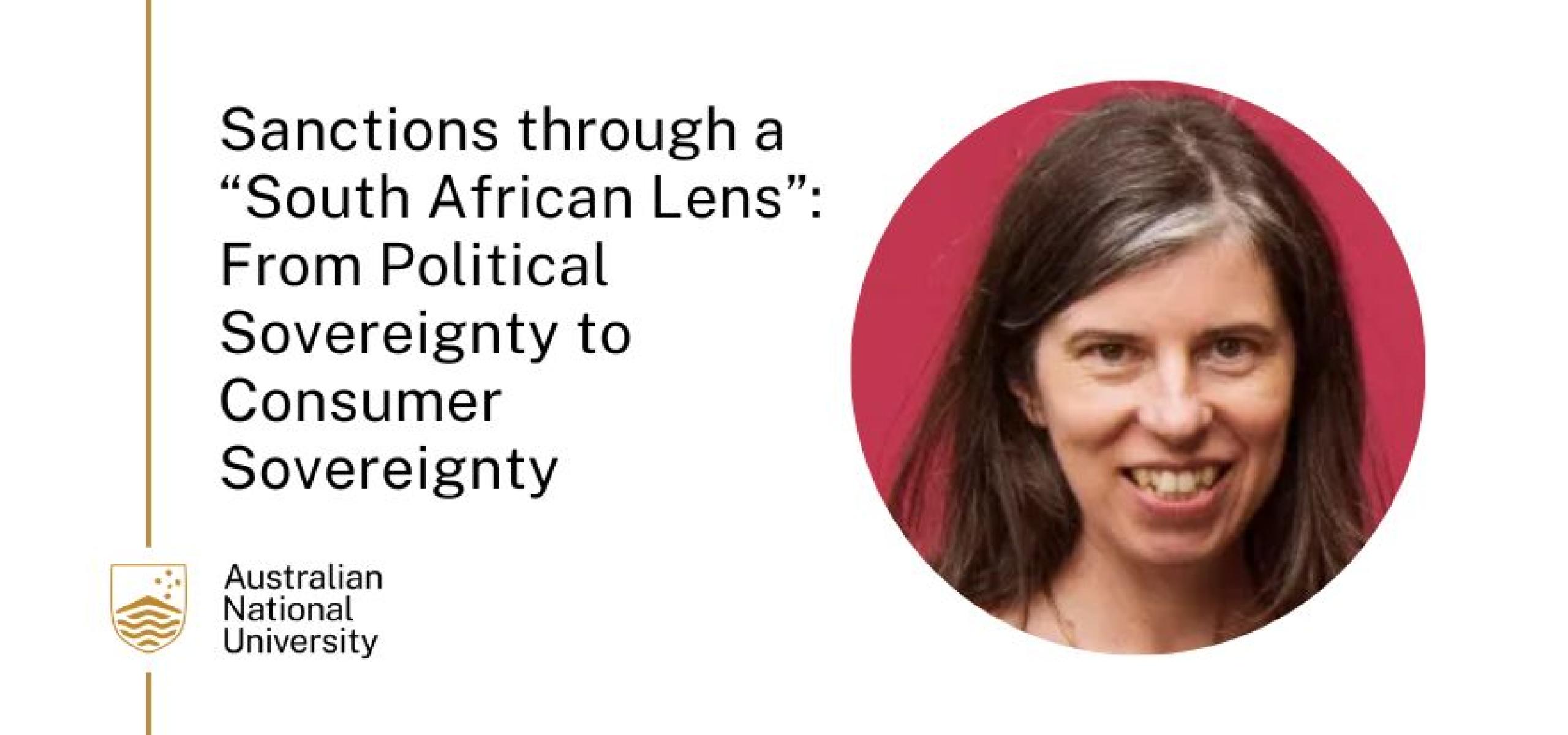
Date & time
Venue
ANU College of Law Moot Court, Building 6A
Register for the event
Event description
Unfortunately, this visitors seminar has been cancelled.
Associate Professor Jessica Whyte examines the economic sanctions against South Africa’s Apartheid regime in the context of the rise of neoliberalism. The campaign against Apartheid in South Africa had its greatest successes just as neoliberal leaders like Ronald Reagan in the United States and Margaret Thatcher in the United Kingdom came to power. In South Africa itself, economic liberalization made the country newly dependent on international trade and vulnerable to international economic pressure. But in this seminar, Associate Professor Whyte suggests that the key influence of neoliberalism on the anti-Apartheid movement lies elsewhere, in its anointment of the consumer as the holder of sovereign power.
In the wake of several decades in which former colonies, including many of South Africa’s closest neighbours, had won their independence and sovereignty, the rising neoliberal movement declared that the real sovereigns were neither states nor their citizens but humble consumers. It was in South Africa that this vision took its most articulated form, in the work of the British economist William H. Hutt, who spent much of his life at the University of Cape Town, and who insisted that colour blind sovereign consumers would bring down Apartheid.
This paper traces the way in which the idea of consumer sovereignty informed the two major conflicting international responses to Apartheid: economic sanctions and boycotts, on the one hand, and the Reagan Administration’s policy of “constructive engagement” on the other. These strategies seemed deeply opposed—one relied on the cessation of trade and the isolation of the Apartheid regime while the other saw commerce as the path to progressive change. Yet, for all their differences, both strategies relied on a valorization of the supposedly peaceful realm of market relations over the violence of political struggle, and a sanctification of the consumer, as opposed to the worker or the armed militant, as the key agent of change. Seen through what Mahmood Mamdani calls “the South African lens”, economic sanctions were reframed as peaceful expressions of economic power, in ways that made the harm of sanctions harder to conceptualize.
Speakers

Associate Professor Jessica Whyte
Jessica Whyte is a Scientia Associate Professor of Philosophy at the University of New South Wales, Australia, with a cross-appointment in the Faculty of Law. Her work integrates political philosophy, intellectual history and political economy to analyse contemporary forms of sovereignty, human rights, humanitarianism and militarism. She has a particular interest in the political stakes of mobilizing the category of the human, and in the way claims to protect humanity are bound up with rationalizations for abandoning certain lives and for state-sanctioned killing. She has published widely on human rights, humanitarianism, and neoliberalism, and on contemporary European philosophy (especially Agamben and Foucault.)